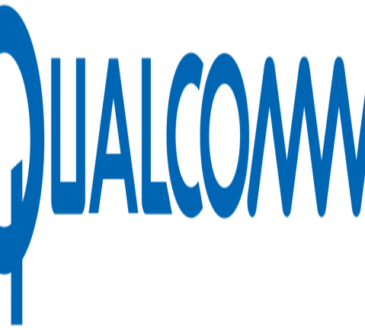
By Cyber Era NG Special Correspondent
AstraZeneca will present new clinical and real-world data in multiple haematological conditions at the 65th American Society of Hematology (ASH) Annual Meeting and Exposition in San Diego, CA, 9 to 12 December 2023.
A total of 63 abstracts will feature 14 approved and potential new medicines across the Company’s portfolio and pipeline including from Alexion, AstraZeneca’s Rare Disease group, in chronic lymphocytic leukaemia (CLL) and several types of lymphoma, paroxysmal nocturnal haemoglobinuria (PNH), atypical haemolytic uraemic syndrome (aHUS) and amyloid light-chain (AL) amyloidosis.
Senior Vice President, Haematology R&D, AstraZeneca, Anas Younes said: “Our data at ASH will exemplify how we are advancing a range of innovative modalities including antibody drug conjugates, next-generation immunotherapies and T-cell engagers in haematology. Updated clinical data for AZD0486, our CD19/CD3 T-cell engager, reinforce our belief in this approach as a potential new treatment for lymphoma, and new Calquence data continue to demonstrate long-term efficacy and safety in chronic lymphocytic leukaemia with further follow up.”
Senior Vice President, Head of Development, Regulatory and Safety, Alexion, Gianluca Pirozzi said: “Alexion has transformed the treatment landscape and redefined care for the paroxysmal nocturnal haemoglobinuria patient community over the past two decades. At the ASH Annual Meeting, new results from our pivotal ALPHA trial will demonstrate the promise of Factor D inhibition to advance care for the small subset of patients with paroxysmal nocturnal haemoglobinuria who experience clinically significant extravascular haemolysis. We are proud to further our leadership in rare disease by sharing data from our robust haematology pipeline, reflecting our commitment to innovation and improving outcomes for the patients and families we serve.”
Calquence continues to demonstrate long-term benefits in CLL
Six-year follow-up data from the pivotal ELEVATE-TN Phase III trial will further support the continued efficacy, safety and tolerability of Calquence for long-term use in patients with treatment-naïve CLL.
Data from a Phase II trial will show the safety and efficacy of Calquence and rituximab followed by chemotherapy and autologous stem cell transplantation in fit patients with treatment-naïve mantle cell lymphoma (MCL).
An analysis of five prospective Calquence trials, including three randomised, controlled Phase III trials and two non-randomised trials, will show acceptable safety outcomes based on rates of nonfatal and fatal ventricular arrhythmias and sudden death in patients with CLL.
Novel early assets show potential to improve outcomes for blood cancer patients
Data from our early portfolio will demonstrate how the Company is advancing multiple modalities across several scientific platforms, including Immuno-Oncology, Immune-Engagers, Antibody Drug Conjugates (ADCs) and Epigenetics as part of its strategy to attack cancer from multiple angles.
Updated Phase I data for AstraZeneca’s CD19/CD3 T-cell engager, AZD0486, will further demonstrate the acceptable safety profile and high response rate of this treatment in relapsed/refractory (R/R) B-cell non-Hodgkin lymphoma (NHL).4 We will also present the first clinical data on sabestomig, a PD-1/TIM-3 targeting bispecific antibody, in R/R Hodgkin lymphoma, showing encouraging early signals of activity.
The first preclinical data for AZD9829, a novel CD123-targeting ADC, using AstraZeneca’s proprietary linker technology to deliver a topoisomerase I inhibitor warhead, will demonstrate promising anti-tumour activity in acute myeloid leukaemia. In addition, preclinical data will demonstrate anti-tumour activity of AstraZeneca’s novel PRMT5 inhibitor in MTAP silenced Hodgkin lymphoma models.
Showcasing advances to bolster our leadership in PNH with new data on Factor D inhibition and impact of C5 inhibition in long-term disease control
New results from the 24-week and long-term extension period from the pivotal ALPHA Phase III trial will reinforce the potential for danicopan add-on therapy to address clinically significant extravascular haemolysis (EVH) in the small subset of PNH patients who experience this condition while treated with C5 inhibitor therapy, allowing them to maintain control of intravascular haemolysis (IVH) through standard-of-care treatment with Ultomiris (ravulizumab) or Soliris (eculizumab).
Further, patient-reported outcomes from the ALPHA trial will suggest danicopan as an add-on to Ultomiris or Soliris improved quality of life compared to C5 inhibitor therapy alone in patients with PNH who experience clinically significant EVH.
Additionally, Alexion will present an analysis of six-year outcomes from the Phase III clinical trial evaluating the safety and efficacy of Ultomiris in patients with PNH who did not have previous treatment with a C5 inhibitor. The analysis compared survival against untreated patients in the International PNH Registry, the largest global real-world database of patients with PNH. Results will suggest Ultomiris improved survival and maintained effective long-term control of IVH, the most significant contributor to morbidity and premature mortality in PNH.
Improving diagnosis and management of life-threatening rare diseases, including amyloidosis
24-month results of a Phase II trial will demonstrate the safety and tolerability of CAEL-101 in combination with cyclophosphamide-bortezomib-dexamethasone with or without daratumumab for the treatment of AL amyloidosis.
Real-world analyses across AL amyloidosis, aHUS and haematopoietic stem cell transplant-associated thrombotic microangiopathy (HSCT-TMA) will also be presented, advancing the scientific understanding of these rare, haematological conditions.



